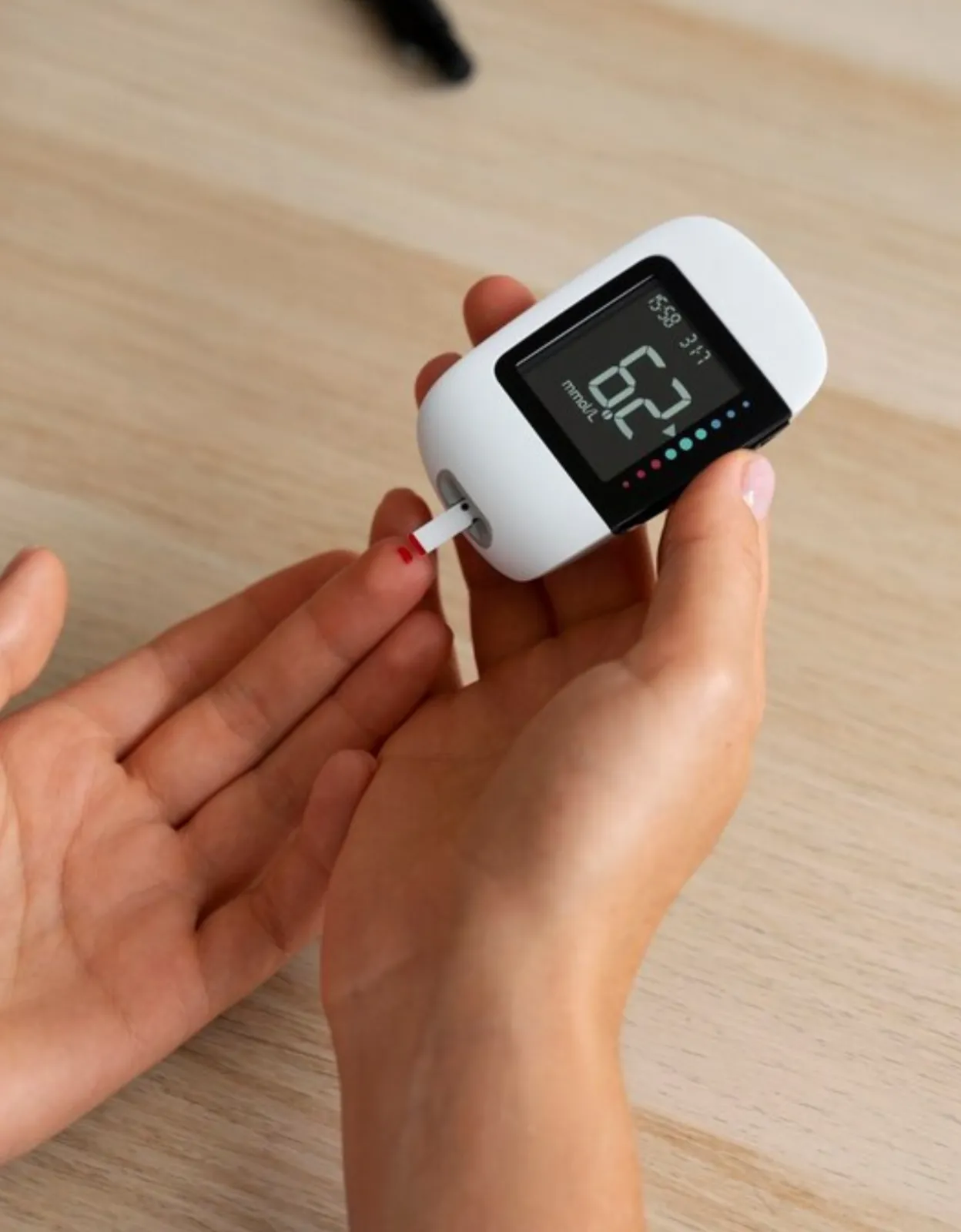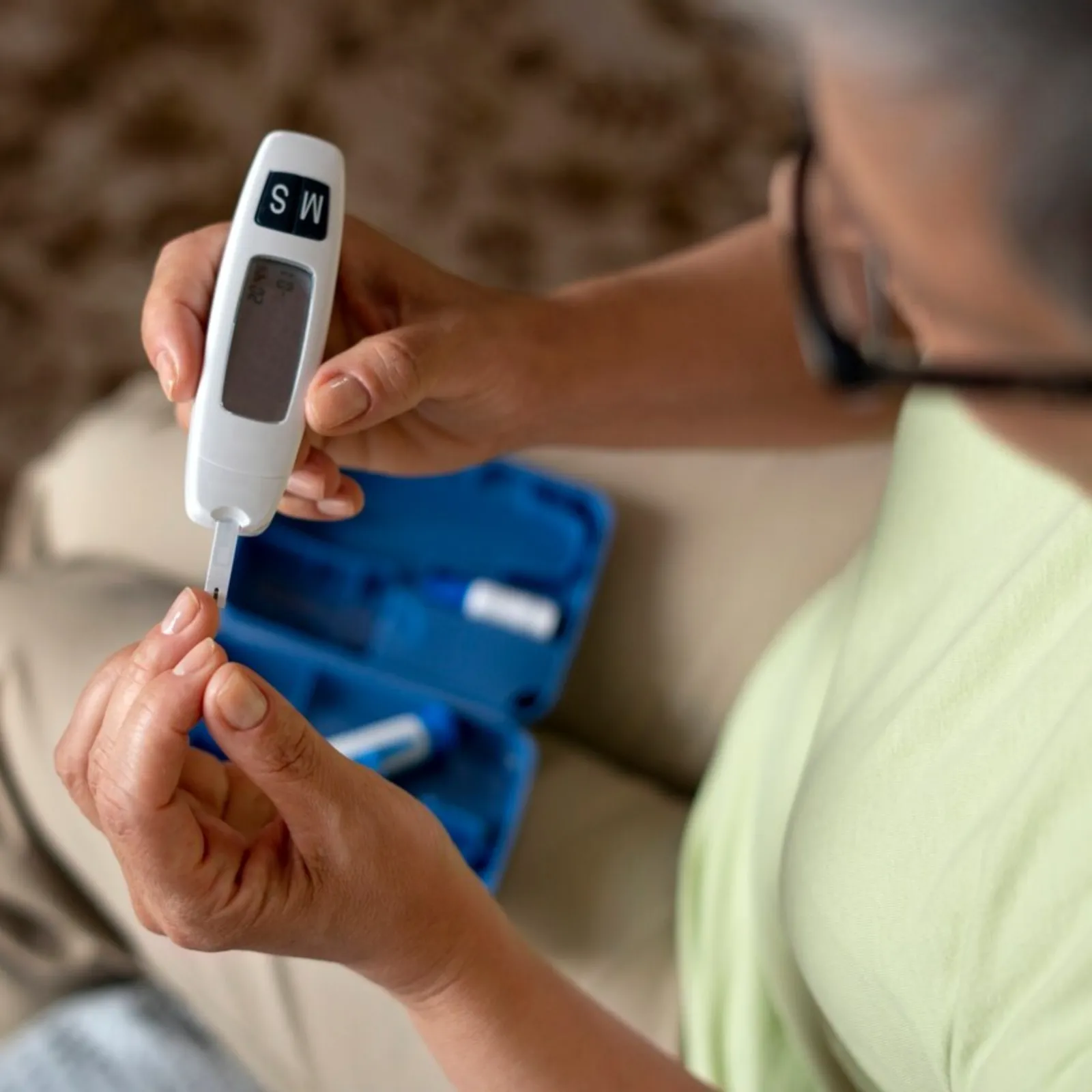28 Mar 2025
Recommended
Minimum 30 mins
Course
Access
Certification
Voiceover

Blood glucose monitoring is a critical component in managing diabetes and related conditions, essential for ensuring optimal patient outcomes. This course is designed for healthcare professionals, including doctors, nurses, and care workers, to develop a thorough understanding of the principles and practices of blood glucose monitoring, following the latest UK guidelines and evidence-based practices.
The course explores the physiological basis of glucose regulation, the pathophysiology of glucose dysregulation, and the effective use of monitoring devices, including finger-prick testing and continuous glucose monitoring systems. Participants will learn how to interpret blood glucose results, identify hypo- and hyperglycaemia, and integrate these findings into comprehensive care plans.
By emphasising patient education and the use of advanced technologies, this course supports healthcare professionals in delivering patient-centred care and fostering improved adherence to treatment plans. Upon completion, participants will be equipped with the knowledge to enhance the accuracy and effectiveness of blood glucose monitoring, ultimately improving patient safety and outcomes.

 £20
£20
Learning Outcomes.
By the end of this course,participants will be able:
To understand the physiology of blood glucose regulation and the pathophysiology of glucose dysregulation.
To gain knowledge of various blood glucose monitoring devices and their appropriate uses.
To interpret blood glucose results and integrate findings into patient care plans.
To identify, assess, and manage hypo- and hyperglycaemia in diverse patient populations.
To educate patients on self-monitoring techniques and support adherence to personalised care plans.
To incorporate evidence-based practices and technological advancements to optimise blood glucose monitoring.
Course
Contents.
01
Introduction to blood glucose monitoring and its clinical importance.
03
Overview of blood glucose monitoring devices and their functions.
05
Principles of result interpretation and implications for treatment planning.
08
Strategies for effective patient education and promoting self-monitoring.

06
Considerations for monitoring in special populations, including paediatrics and gestational diabetes.
09
Addressing quality control and safety in blood glucose monitoring practices.
02
Physiology of glucose regulation and implications for health.
04
Methods for achieving accuracy in blood glucose measurement.
07
Role of digital tools and health records in integrating blood glucose data.
10
Exploring evidence-based innovations in blood glucose management.
The Blood Glucose Monitoring Awareness course equips healthcare professionals with the essential knowledge to accurately monitor, interpret, and manage blood glucose levels. By incorporating UK guidelines, evidence-based practices, and advancements in monitoring technologies, participants will be well-prepared to deliver patient-centred care that improves diabetes management and overall patient outcomes. This course also highlights the importance of patient education and quality control in fostering adherence and enhancing the safety and effectiveness of care.
 Summary
Summary


